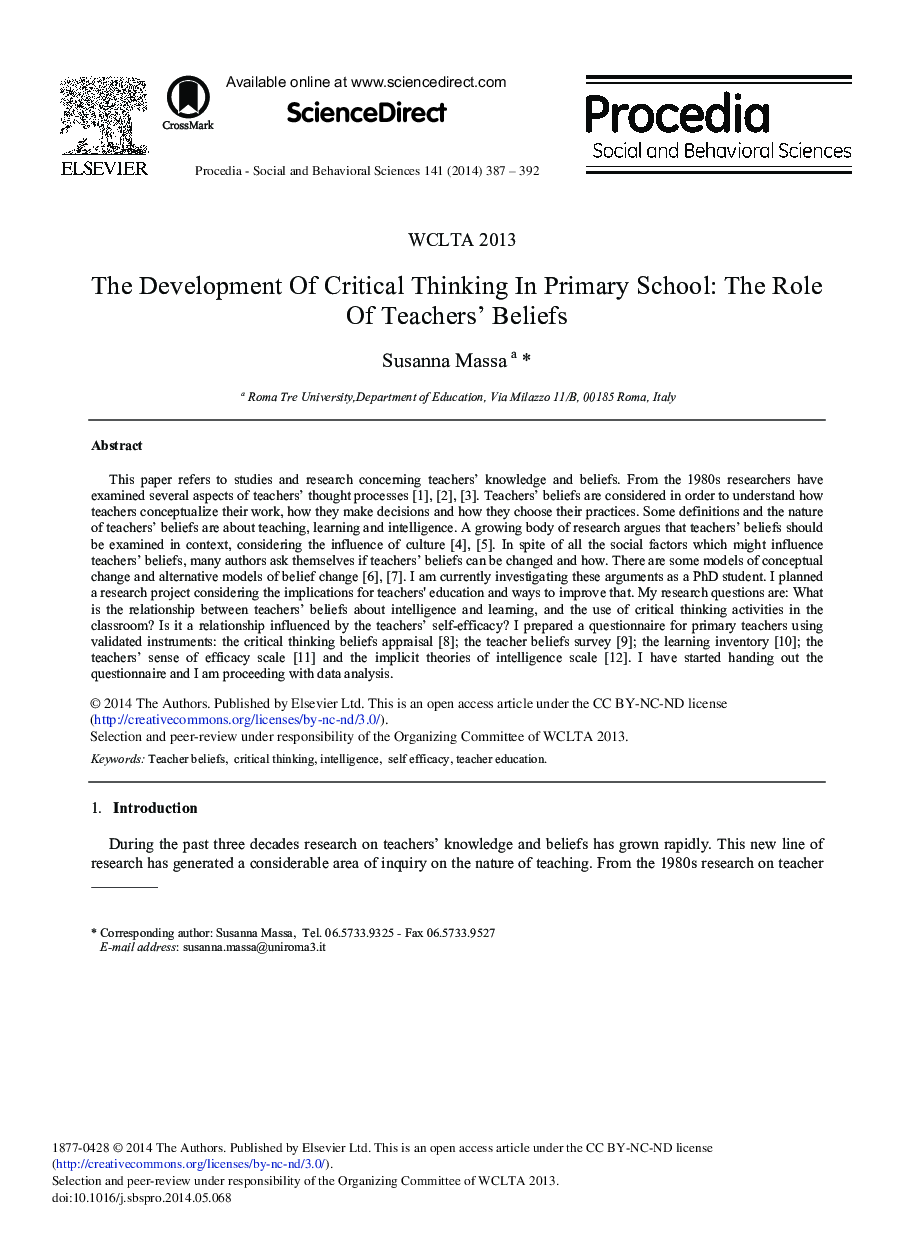| کد مقاله | کد نشریه | سال انتشار | مقاله انگلیسی | نسخه تمام متن |
|---|---|---|---|---|
| 1113262 | 1488418 | 2014 | 6 صفحه PDF | دانلود رایگان |
This paper refers to studies and research concerning teachers’ knowledge and beliefs. From the 1980s researchers have examined several aspects of teachers’ thought processes [1], [2], [3]. Teachers’ beliefs are considered in order to understand how teachers conceptualize their work, how they make decisions and how they choose their practices. Some definitions and the nature of teachers’ beliefs are about teaching, learning and intelligence. A growing body of research argues that teachers’ beliefs should be examined in context, considering the influence of culture [4], [5]. In spite of all the social factors which might influence teachers’ beliefs, many authors ask themselves if teachers’ beliefs can be changed and how. There are some models of conceptual change and alternative models of belief change [6], [7]. I am currently investigating these arguments as a PhD student. I planned a research project considering the implications for teachers’ education and ways to improve that. My research questions are: What is the relationship between teachers’ beliefs about intelligence and learning, and the use of critical thinking activities in the classroom? Is it a relationship influenced by the teachers’ self-efficacy? I prepared a questionnaire for primary teachers using validated instruments: the critical thinking beliefs appraisal [8]; the teacher beliefs survey [9]; the learning inventory [10]; the teachers’ sense of efficacy scale [11] and the implicit theories of intelligence scale [12]. I have started handing out the questionnaire and I am proceeding with data analysis.
Journal: Procedia - Social and Behavioral Sciences - Volume 141, 25 August 2014, Pages 387-392
